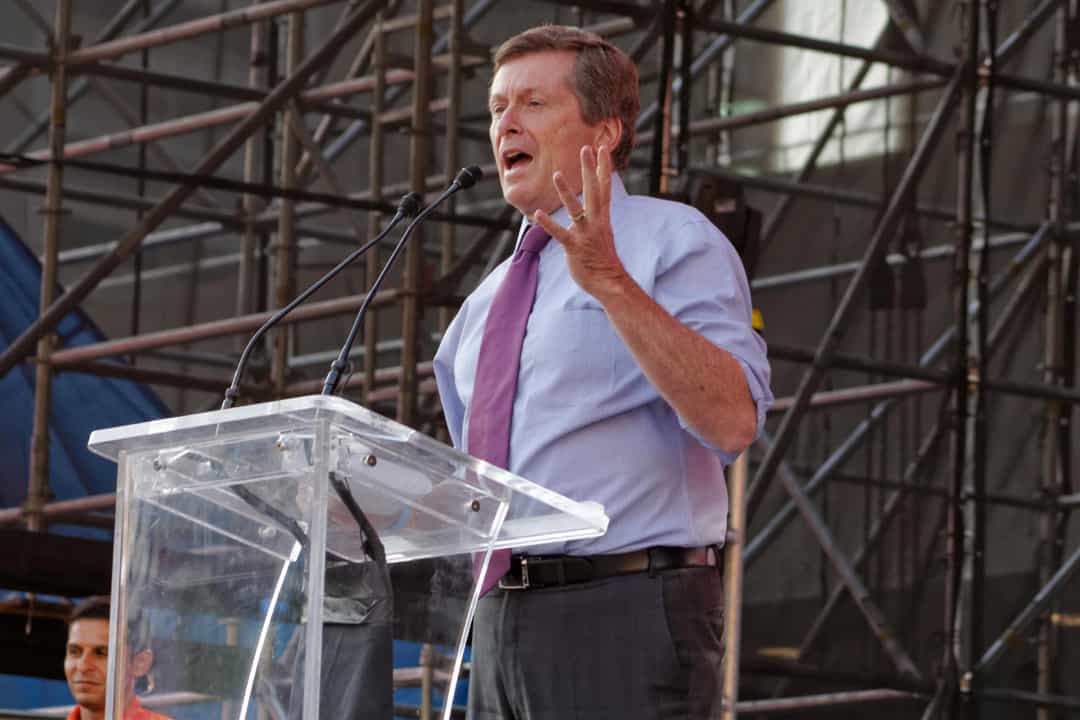On February 10, after admitting to an extramarital affair with a former member of his office staff, John Tory announced his official resignation as mayor of Toronto, effective February 17.
According to the City of Toronto Act, the current Deputy Mayor — Jennifer McKelvie — will take over some of the mayor’s responsibilities until a byelection is held.
On February 16 at Toronto City Hall, McKelvie assured Toronto residents of her focus on a “smooth transition” and “good governance.” She plans to continue delivering on Tory’s priorities, including “keeping our city safe, getting housing built, getting transit built, and making sure the nuts-and-bolts city services continue to be delivered in the best possible way.”
At the upcoming City Council meeting on March 29, the mayor’s office will be declared vacant. The city clerk will set a deadline for mayoral candidates to file their nominations, and elections will occur 45 days after the nomination deadline.
Over the next few days, Tory will continue to work with city staff and McKelvie to help provide a smooth transition.
Tory’s mayoral term
Tory was first elected to the office of mayor in 2014, and one of his initial campaign’s focuses was public transit. However, despite his promise to freeze TTC fares, they have increased nearly every year since he took office, rising from $2.65 for a single adult ride to $3.25 in nine years. During this time, TTC fares have only been frozen during his re-election year in 2018 and from 2021 to 2022 due to the pandemic. The fare increased again in January 2023.
While Tory recommended increases in TTC fares to cover improvements to the transit system, lower-income Toronto residents are disproportionately affected by the changes, along with many commuter students.
When addressing housing affordability, Tory promised to “explore financing and incentives” to encourage the development of home ownership and affordable rentals.
In 2016, the City Council approved the Open Door Affordable Housing Program, which aims to “accelerate affordable housing construction by providing City financial contributions.”
The Open Door Program aims to aid the City in accomplishing the objectives of the Housing TO 2020–2030 Action Plan. The Plan seeks to gain approval for 40,000 new rental homes and up to 4,000 new affordable homes for people to purchase by 2030.
As the cost of living continues to rise in Toronto, housing affordability remains a concern for Toronto residents. As of 2022, the average rent in the city increased by 24 per cent, and students have been subjected to unfair practices like upfront rent payments.
In response to recent reports of violence on the TTC, students who rely on public transit are becoming more concerned for their safety. Tory said increasing the police force on public transit is a part of addressing the issue. After the 2023 municipal budget increase, a $48.3 million increase in Toronto Police Services funding was proposed and accepted to the budget. The former mayor has also linked the reported attacks on the TTC to issues with access to mental health support in Toronto.
In January, Tory called for a national summit to tackle the mental health crisis in the city. The proposed summit would include a discussion between mayors, ministers, premiers, and the Prime Minister regarding how to better support residents living with mental health and addiction challenges.
Student impact
Students are only able to vote if they are above the age of 18, live in Toronto, and have Canadian citizenship. Students who are non city residents but meet the other two criteria may still vote if they or their spouse own or rent property in the city. As well, students are only allowed to vote in the ward where they live.
The City of Toronto website explained that in previous elections, Residence Housing Administrators have issued letters to students living in U of T residences to provide their voting eligibility details.
If a student is a Toronto resident studying outside the city, they may appoint another elector as a proxy to vote on their behalf.


